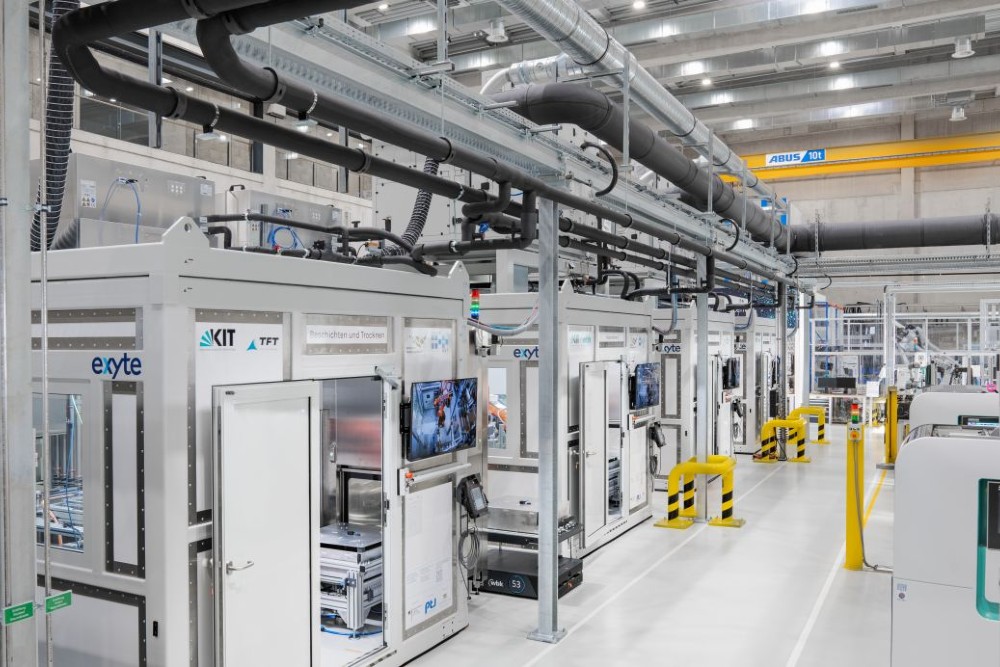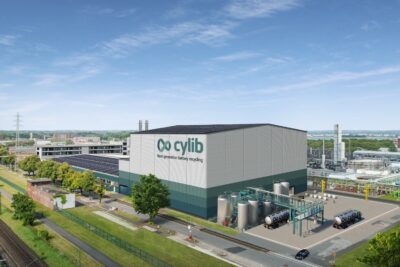KIT opens world’s first ‘agile’ battery cell production facility
The Karlsruhe Institute of Technology has announced that the “world’s first agile battery cell production facility” is now operational on its premises. The facility is a robot-based, modular production system that will allow the production of customised battery cells in the required quantities. At the heart of the solution are robot cells designed by KIT researchers together with Exyte. Other scientists from the AgiloBat research project and several mechanical engineering companies were also involved in the construction.
The idea behind the system is to remain flexible despite automation in cell production – or vice versa – to produce automatically despite a high need for flexibility. It should enable companies to adapt quickly to new technologies and volatile markets. The KIT states that this will strengthen Germany’s competitiveness as an industrial centre. With this in mind, the federal and state governments have subsidised the construction with almost 19 million euros.
The new facility is explicitly not an alternative to cost-driven mass production, which is currently covered by players in Asia and North America. “In Germany, we don’t have the prerequisites to be competitive in the purely cost-driven mass production of cells and the associated mechanical engineering,” says Professor Jürgen Fleischer, Head of the wbk Institute for Production Technology at KIT. “The opening of the world’s first agile battery cell production facility in the Karlsruhe research factory shows how we can differentiate ourselves from the global market with highly flexible and resource-efficient production and specifically address the high-margin premium segment and niche markets.”
According to Fleischer, special robot rooms at the heart of this approach serve as local drying rooms (also called microenvironments’) to protect the moisture-sensitive battery materials. Compared to conventional drying rooms, the room volume to be dehumidified is significantly smaller. The technology thus offers exceptionally high energy-saving potential, according to the initiators. Four such microenvironments with their associated process modules represent the physical structure of the agile battery cell production in the wbk research factory in Karlsruhe.
In addition, the project participants built a digital twin, i.e., a virtual image of the production system. According to the report, it allows scientists to “analyse software-based economies of scale through the multiplication of individual microenvironments and determine production-related variables such as the optimum batch size.” The simulation can also be used for production planning in agile battery cell production. The actual plant is connected to a database so that AI can adapt and improve all processes in the future.
From idea to realisation, the scientists in the AgiloBat research project worked closely with machine and plant manufacturers. It should allow participating companies to “manufacture battery cells in a variant-flexible, resource-efficient and automated manner and to test new material systems through industry-oriented production with small quantities of material.”
The infrastructure developed complements the research infrastructure in the field of battery cell production that has been built up at KIT since 2011. In addition to seven KIT institutes, the AgiloBat project also brought together researchers from the Centre for Solar Energy and Hydrogen Research Baden-Württemberg and the Fraunhofer Institute for Chemical Technology. From the mechanical and plant engineering sector, Coperion GmbH, Saueressig Group, Schunk Group, Herrmann Ultraschalltechnik GmbH & Co. KG, Siemens AG, DEHOF ingenieur+technik and Exyte Technology GmbH took part.
Incidentally, Exyte is already doing well. In 2023, Volkswagen awarded the Stuttgart-based plant manufacturer the contract to build the drying room for the Group’s first battery cell gigafactory in Salzgitter.
kit.edu (in German)





0 Comments